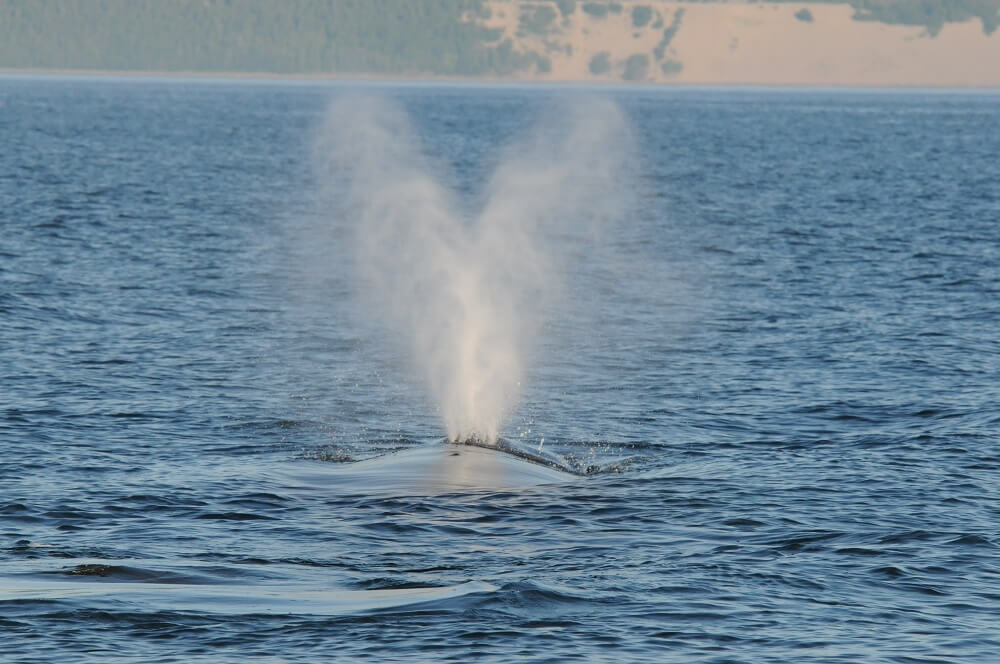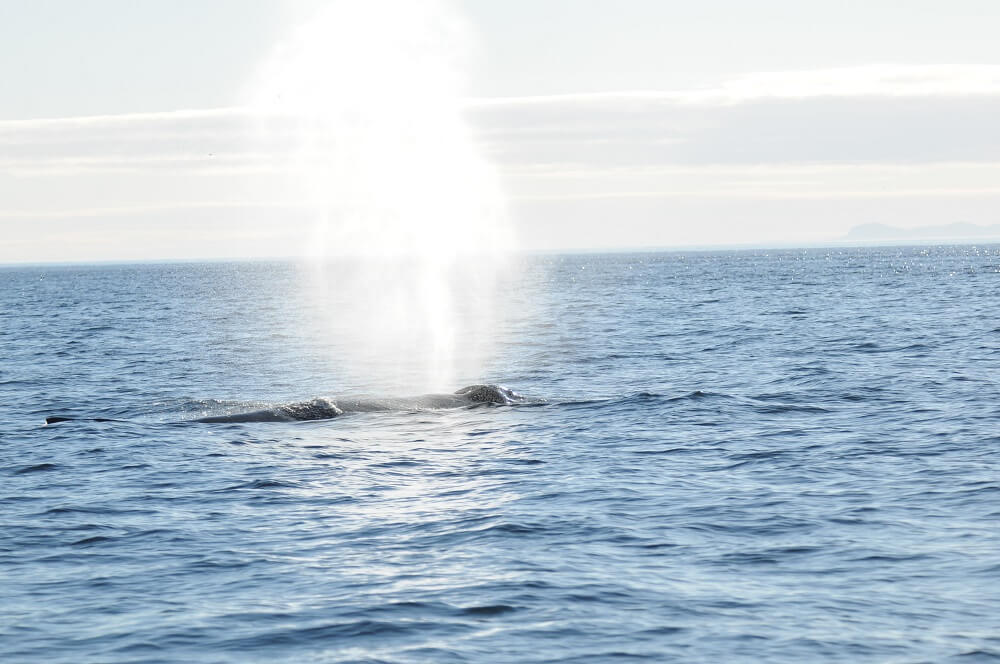A large group of bacteria was identified for the first time in the breath (or blow) of humpback whales. Whether they live in the Atlantic or in the Pacific, humpbacks to a large extent harbour the same organisms in their blow. Is this a sign of illness? Probably not, as these whales appear to be in good health. Rather, scientists believe that these microorganisms living in whale respiratory systems – like many microorganisms that inhabit the human body – play an important role in maintaining the overall health of the animals, either by boosting their immune system or by fighting pathogens. Researchers hope this discovery will help them better assess and monitor the health of whales.
“The pulmonary system is a common site for bacterial infections in whales,” explains Amy Apprill, researcher at the Woods Hole Oceanographic Institution and lead author of this study, recently published in mSystems. “We see evidence of respiratory illnesses frequently in stranded and deceased animals,” says Apprill. “Until now, little has been known about the normal respiratory microbiome of healthy whales.” Their study will therefore help to fill in some of these data gaps.
Surprising results
Blow samples were collected from two humpback populations, one living in the coastal waters near Cape Cod and the other living off Vancouver Island. The team then sequenced the genetic material found in the samples to determine what kinds of microorganisms are living in the whale’s respiratory tract.
The researchers were surprised to discover a microbiome very different from the one present in the seawater, which clearly demonstrates that this microbiome is coming from the animal. Of the bacterial groups identified, 25 of them were found in all collected samples. This suggests that, regardless of where the animal lives, its age or sex, it shares an important blow microbiome with other members of its species.
Do less healthy animals have a different microbiome? This is what researchers will try to determine in the seasons to come.
Collecting without disturbing
In order to collect a blow sample from a whale, researchers traditionally use a small boat. When they are close enough to the whale, they collect a sample with a long pole at the tip of which they’ve attached a Petri dish. Although effective, this approach can potentially alter the whale’s behaviour and increase its stress level. Apprill and her colleagues therefore wanted to develop a new, less intrusive technique to assess the health status of whales.
While they were using a drone to capture aerial images of whales, they realized that they could fly through the spouts of their study subjects without disturbing them. It is therefore by using a drone – a hexacopter above which they attached a Petri dish – that the researchers collected their blow samples. The hexacopter is also equipped with a camera for taking high-resolution aerial images for subsequent analysis of the animals’ body condition and general state of health.
Monitoring whale health
Over the past 19 months, no fewer than 53 humpbacks have died along the eastern US coast between Maine and North Carolina. What are the causes of this unusual mortality event? Could analysis of the microbiome present in whale blow provide some answers? Few techniques currently exist to collect data at sea on the health status of large whales such as humpbacks and right whales. Researchers now have a new technique at their disposal that might prove useful to monitor the health status of these populations.







